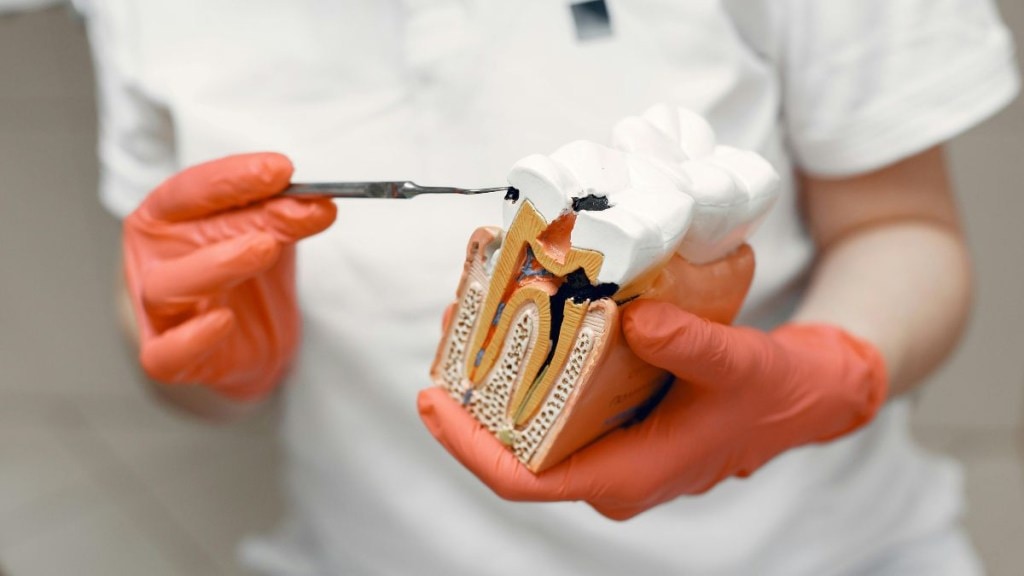As obesity becomes a worldwide concern, weight loss drugs like Ozempic, Wegovy and Mounjaro have shown huge promise in the weight loss space. While people and celebrities on the GLP-1 medications have shared stories of transformation, they may not be for everyone, considering certain unpleasant side effects. Apart from headache, nausea, fatigue, and gastrointestinal issues, the weight loss jabs can also be troublesome for oral health. Now dentists are warning about a new side effect of the weight loss drug – Ozempic teeth, which is characterised by dry mouth, tooth decay, enamel erosion, gut inflammation, swelling, and bad breath. Here’s why it happens.
How Ozempic affects your teeth
According to a review published in PubMed, semaglutide the main active compound of the weight loss drugs, can impact your salivary glands, which lowers the saliva production in the mouth. This condition is called hyposalivation. The review references three patients on semaglutide who developed secondary xerostomia. All of them had severe dryness in the mouth with minimal frothy saliva.
Apart from dry mouth, the GLP-1 medication can also trigger acid reflux and vomiting, which can also damage tooth enamel. People on these drugs are also reported to feel less thirsty, which can again affect their dental health.
Dr Taranjit Singh, Dental Surgeon, CEO, Janak Dental Clinic, says weight loss drugs can significantly impact your oral cavity, leading to issues like:
Dry mouth (Xerostomia): Reduced saliva production, which normally neutralizes acids and washes away bacteria, can increase the risk of tooth decay, gum disease, and bad breath.
Tooth decay and enamel erosion: Stomach acid from nausea and vomiting can weaken teeth, while decreased saliva flow makes it harder for your mouth to repair enamel.
Gum problems: Gum inflammation, swelling, and bad breath can occur due to the shift in bacterial balance.
Nutritional deficiencies: Appetite suppression can lead to lower intake of essential nutrients like calcium, vitamin D, and vitamin C, crucial for strong teeth and gums.
Bad breath: Bacteria thriving in a dry, acidic mouth can cause halitosis.
How to avoid this side effect
To avoid dry mouth, tooth decay, and gum diseases while using Ozempic, it’s advisable to follow certain dental wellness tips.
Dr Gurleen Kaur, Consultant Dental Surgeon, Karam ENT and Dental Clinic shares the following tips:
Good oral hygiene: This includes brushing twice daily with a fluoride toothpaste and using non alcoholic fluoride mouthwash. Using alkaline wash after an episode of vomiting can help neutralise the effects of acid on the teeth. Avoid brushing immediately after vomiting.
Maintain hydration: Keep sipping water after regular intervals to counter xerostomia. Avoid too much sugary or caffeinated drinks which can worsen the symptoms. Saliva substitutes can help.
Regular dental checkups: They are a must to catch the problems early. The drug does not directly cause these oral side effects but the issues happen due to xerostomia and acid reflux.
Eat right: Balanced diet with essential nutrients like vitamins, minerals, protein among others can help.

